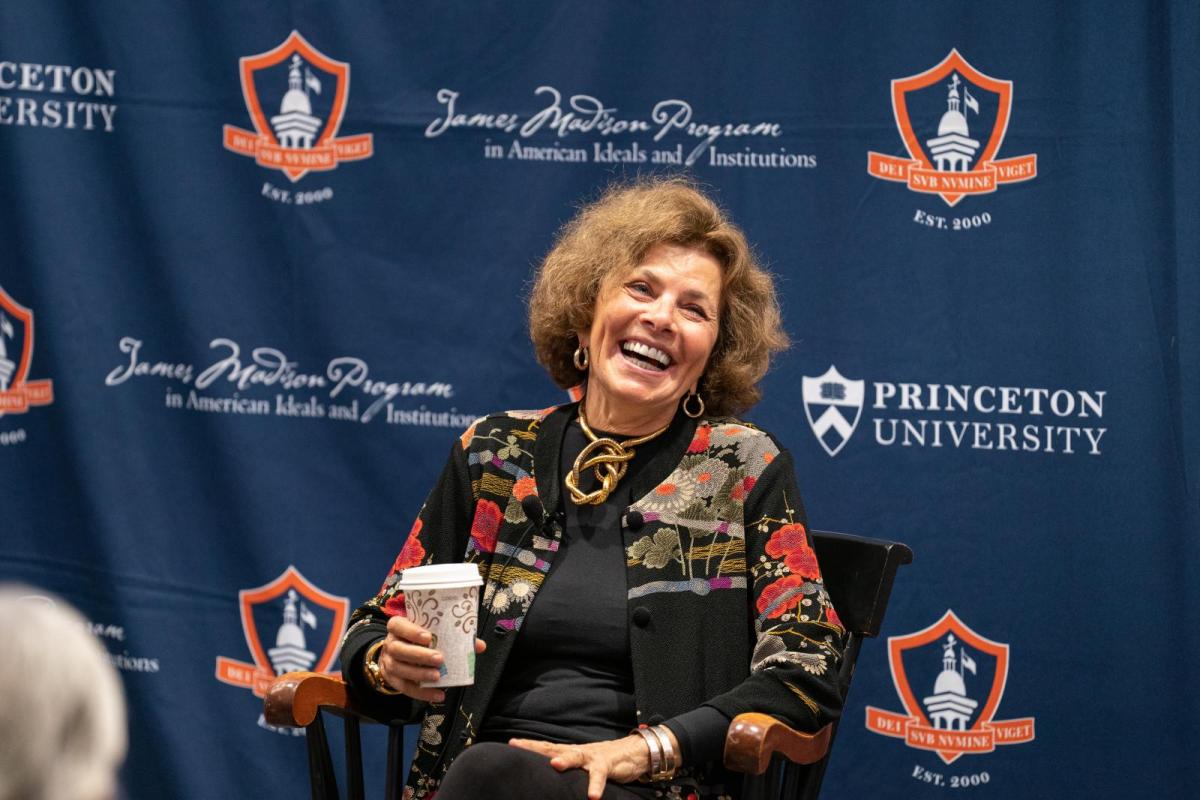Your Cart is Empty
By Ethan Hicks ‘26
On Tuesday, March 21, Professor Robert P. George, McCormick Professor of Jurisprudence at Princeton, and Nadine Strossen, former president of the ACLU, sat down to discuss the history and modern state of free speech in America in their joint talk “Civil Liberties: On Campus and Beyond.” An engaged audience of students, faculty, and community members filled Lewis Auditorium to join George and Strossen for their fireside style chat hosted by Princetonians for Free Speech and Princeton Open Campus Coalition.
George offered a detailed and colorful history of Free Speech in America. He discussed why the Framers did not initially find a Bill of Rights necessary to the Constitution, because they believed the Constitution's limited enumerated powers protected citizens from encroachments upon their rights, and he suggested that the large size and extensive powers of the modern national government deviate from the Framers’ intentions. George further examined how the national government’s robust system of checks and balances protects freedom of speech, and the philosophical importance of diverse opinions in free democratic societies and institutions such as the United States and the Princeton academic community.
Strossen built upon many of George’s philosophical and historical arguments by drawing on her experience at the ACLU. Strossen focused on how the Fourteenth Amendment expanded the protections of the First Amendment to protect citizens from violations of their First Amendment rights by state and local governments. She further examined how legal action enforcing the First Amendment was not fully embraced until the 20th century despite its origin over 150 years earlier.
Strossen expanded the conversation about the modern state of free speech by claiming that meaningful free speech will not exist until private organizations such as social media platforms are no longer permitted to restrict speech. She claimed that at present, “you have no constitutional recourse against powerful social media platforms that are discriminating against or de-platforming certain ideas… you have no First Amendment recourse against so-called cancel culture.” Many audience members found her passionate rhetoric to be a call to action.
In the spirit of Strossen’s message, several of the questions posed by the audience asked George and Strossen about how freedom of expression can be improved in private and public institutions. The speakers suggested a variety of changes including the expansion of groups such as the Academic Freedom Alliance and stronger adherence to free speech ideals such as the Chicago Principles.
Ethan Hicks is a freshman at Princeton from Perry, Ohio
RocaNews is one of those new platforms growing by the seemingly simple acts of building trust and conducting on-the-ground reporting in the places the New York Times promised to do. They believe their readers are smart enough to form their own opinions. At least that was being claimed on February 19th in McCosh Hall at an event entitled RocaNews, Non-Partisan Reporting, and the Fight against Legacy Media organized by the Princeton Open Campus Coalition (POCC). RocaNews currently has 2 million instagram followers, 651,000 YouTube subscribers, and a daily newsletter sent to over 200,000 subscribers. If that growth is not enough to convince you that they are doing something right, you can see for yourself through a myriad of ways, all focused on ease of access and user experience. Roca uses Instagram and newsletters to build a go-to news community based on factual, on-the-ground reporting.
On Friday, January 23, 2026, several students from Princeton University marched to the top of Capitol Hill, joining tens of thousands of Americans in the National March for Life. Originating just months after the legalization of abortion in Roe v. Wade (1973), the National March for Life inaugurated the first major public conversation on the sanctity of life and a constitutional protection of the unborn. Today, four years after the overturn of Roe in Dobbs v. Jackson Women’s Health Organization (2022), the march still serves as a platform for individuals to express their hopes and visions for the future of the Pro-Life movement.
Having experienced the tangible and transformative power of free speech evident in the march, four Princeton students have graciously agreed to share thoughts both about their participation in the march and also about the overall experience with pro-life dialogue on campus.
On February 19, the Princeton Council on Academic Freedom hosted Erwin Chemerinsky, Dean of the Berkeley School of Law at the University of California, Berkeley, to discuss his forthcoming book Campus Speech and Academic Freedom: A Guide for Difficult Times, co-authored with Howard Gillman. Chemerinsky described universities as operating in a moment of political pressure, as debates over Israel–Palestine, race, gender identity, and other charged issues intensify scrutiny of campus speech.
Throughout the talk, Chemerinsky argued that free speech is truly tested when we defend free expression we detest.



